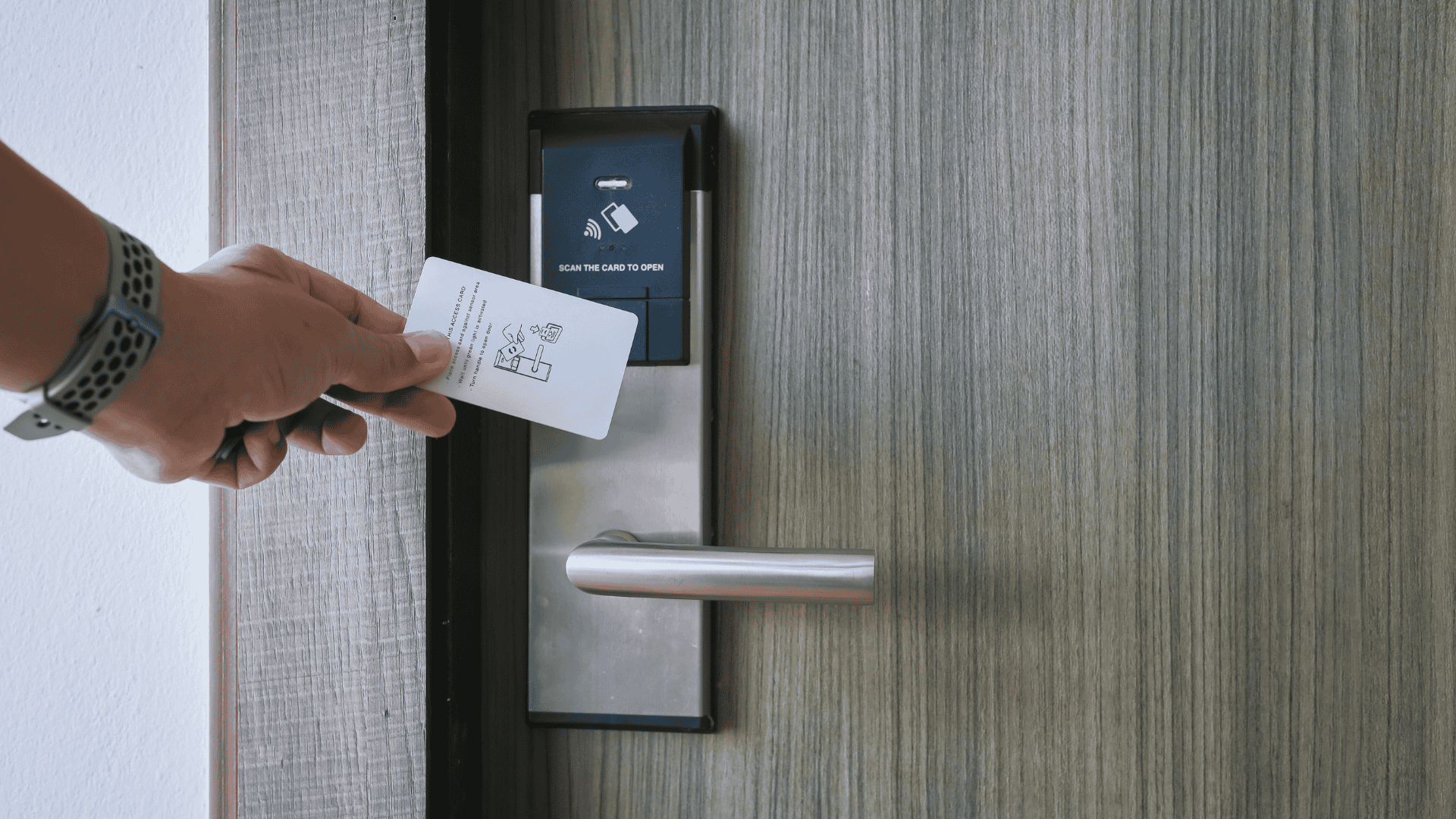In today’s rapidly evolving digital landscape, the importance of robust cybersecurity measures cannot be overstated.
As we delve into NIS2, we aim to shed light on its profound impact on the hotel industry. This European directive, while technical in nature, has far-reaching implications that extend beyond just IT departments and touch every facet of hotel operations.
From guest data protection to internal communication systems, understanding the impact of NIS2 is crucial for hoteliers to not only ensure compliance but also to fortify their establishments against potential cyber threats. In this blog we navigate the intricacies of NIS2 and explore its significance for hotels in this ever-connected world.

Understanding NIS2 and its Implications
The realm of cybersecurity and data protection is vast, and at its forefront is the NIS2 directive, a pivotal piece of legislation that seeks to bolster the cyber resilience of essential service providers. But before diving deep into its nuances, it’s imperative to understand the foundational difference between European directives and international laws.
European directives, like NIS2, are legislative acts that set out a goal that all EU countries must achieve. However, it’s up to the individual countries to devise their own laws on how to reach these goals.
This allows for a degree of flexibility, enabling member states to tailor the directive to their unique legal and operational landscapes. In contrast, international laws are agreements that have binding legal force among the countries that sign them.
They apply uniformly across all signatory nations, leaving little room for individual interpretation or adaptation. The distinction is crucial when considering the implications of NIS2. As a European directive, NIS2 provides a framework, but the onus is on each member state to implement it in a manner that aligns with their national laws and circumstances.
This means that while the core objectives of NIS2 remain consistent, the specific requirements and regulations might vary from one country to another.
For businesses operating across multiple EU countries, this can pose challenges, necessitating a nuanced approach to compliance that takes into account the varied implementations of the directive across the continent.

The Interplay of GDPR and NIS2
In the evolving landscape of digital security and data protection, two significant regulations stand out in the European context: the General Data Protection Regulation (GDPR) and the NIS2 directive. Both aim to safeguard data and ensure robust cybersecurity measures, but they target different aspects and have distinct implications. For the hotel industry, understanding the interplay between these two is crucial.
Let’s delve into their similarities, differences, and the responsibilities they impose on hotels.
1. Similarities and Differences between GDPR and NIS2:
Purpose:
– GDPR: Primarily focuses on the protection of personal data, ensuring that organizations handle such data transparently, securely, and with the individual’s consent.
– NIS2: Aims to bolster the cybersecurity measures of essential and digital service providers, ensuring they are resilient against cyber threats.
Scope:
– GDPR: Applies directly as an international law across all EU member states, ensuring uniformity in data protection standards.
– NIS2: Functions as a European directive, which means it’s crafted at the European level but needs to be implemented by individual member states into their local laws. This can lead to variations in its application across countries.
Enforcement:
– GDPR: Has seen widespread enforcement with significant fines for non-compliance.
– NIS2: While its enforcement is still evolving, it has the potential for stringent penalties, especially given its focus on critical infrastructure.
2. Responsibilities of Hotels under Both Regulations:
Under GDPR:
– Data Protection: Hotels handle vast amounts of personal data, from guest reservations to payment details. They must ensure this data is stored securely, processed transparently, and only with the guest’s consent.
– Data Breaches: In the event of a data breach, hotels are obligated to notify the relevant authorities within 72 hours and may also need to inform affected individuals.
– Rights of Individuals: Hotels must respect and facilitate the rights of individuals, such as the right to access their data, the right to rectification, and the right to erasure.
Under NIS2:
– Cybersecurity Measures: Even if hotels don’t fall directly under NIS2, their reliance on digital systems and IT providers that might be regulated means they need to bolster their cybersecurity measures.
– Chain of Compliance: Hotels must ensure that their IT providers, especially those falling under NIS2, adhere to the directive’s requirements. This could mean stricter cybersecurity protocols and more rigorous audits.
– Incident Reporting: Similar to GDPR’s data breach notifications, NIS2 mandates that significant cybersecurity incidents be reported to relevant authorities.
In conclusion, while GDPR and NIS2 serve different primary purposes, their impact on the hotel industry is intertwined. Hotels must navigate the dual responsibilities of data protection and cybersecurity, ensuring compliance with both regulations to safeguard their operations and reputation.

Impact of NIS2 on the Hotel Industry
The NIS2 directive, while primarily designed to enhance the cybersecurity measures of essential service providers, has a ripple effect that significantly impacts various sectors, including the hotel industry. Here’s a closer look at how NIS2 reshapes the landscape for hotels and the intertwined relationship with IT providers.
1. The Expanded Scope of NIS2:
At its core, NIS2 broadens the horizon of its predecessor, NIS1, encompassing a wider range of entities and sectors. While hotels might not be the primary target of this directive, they are indirectly affected due to their reliance on digital systems and the vast amount of personal data they handle.
The directive’s expanded scope means that even if a hotel doesn’t fall directly under the purview of NIS2, it might still feel the impact due to its association with entities that do. This could translate to stricter cybersecurity measures, more rigorous compliance checks, and a heightened emphasis on data protection.
2. The Role of IT Providers and the Chain of Compliance:
Hotels, in today’s digital age, heavily rely on IT providers for their operational needs, from reservation systems to guest services. NIS2 brings these IT providers under its ambit, emphasizing their role in ensuring cybersecurity. As a result, IT providers are not just responsible for their own compliance but also have to ensure that their clients, like hotels, maintain adequate cybersecurity measures.
This chain of compliance means that if an IT provider is found lacking, it could have repercussions for the hotel, and vice versa. For instance, if a hotel’s IT provider falls under the scope of NIS2, they are obligated to ensure that the hotel has robust cybersecurity in place.
This could lead to IT providers becoming stricter with their hotel clients, demanding higher standards of cybersecurity. On the flip side, hotels must be proactive in ensuring that their IT partners are compliant with NIS2, as any lapse could indirectly affect the hotel’s operations and reputation.
In conclusion, while NIS2 might not target the hotel industry directly, its impact is undeniable. Hotels must navigate this new landscape with diligence, understanding the directive’s nuances, and ensuring that both they and their IT partners are in lockstep with NIS2’s requirements.

Practical Steps for Hotels to Prepare for NIS2
The digital age has ushered in a plethora of opportunities for the hotel industry, from online bookings to personalized guest experiences. However, with these advancements come challenges, especially in the realm of cybersecurity. The introduction of NIS2 serves as a reminder of the importance of robust digital defenses.
Here’s a guide for hotels to navigate this new directive and ensure they’re adequately prepared.
1. The Importance of Proactive Cybersecurity:
– Stay Updated: Cyber threats evolve rapidly. Hotels must stay abreast of the latest threats and ensure their systems are patched and updated regularly.
– Employee Training: Often, breaches occur due to human error. Regular training sessions can ensure that all staff, from the front desk to the IT department, are aware of best practices and potential threats.
– Regular Audits: Conducting cybersecurity audits can help identify vulnerabilities before they become major issues. Consider hiring external experts to get an unbiased view of your security posture.
2. The Need for Companies to be Prepared Before a Cyber Incident:
– Incident Response Plan: Every hotel should have a clear and actionable plan detailing the steps to take in the event of a cyber incident. This includes communication strategies, data recovery plans, and liaising with authorities.
– Backup Regularly: Data loss can be catastrophic. Regular backups, stored securely off-site, can ensure business continuity even in the face of ransomware attacks or data breaches.
– Engage Experts: Whether it’s cybersecurity firms or legal experts, having a team on standby can expedite the response time and mitigate the impact of an incident.
3. The Various Avenues Through Which Companies Seek Legal Advice on Cybersecurity:
– In-House Counsel: Larger hotel chains might benefit from having dedicated legal teams well-versed in digital laws and regulations.
– External Law Firms: Specialized law firms, like those focusing on cyber laws, can provide invaluable advice, especially in the ever-evolving landscape of digital regulations.
– Consultancies: Beyond legal advice, consultancies can offer a holistic view, combining legal, technical, and organizational strategies to bolster a hotel’s cybersecurity posture.
Conclusion:
The digital realm offers boundless opportunities but is not without its risks. As the NIS2 directive underscores, the onus is on businesses, including hotels, to safeguard their digital assets and, by extension, their reputation and trustworthiness. Proactivity, rather than reactivity, is the need of the hour. By taking concrete steps today, hotels can ensure they’re not just compliant with regulations but are also offering their guests the peace of mind they deserve.



